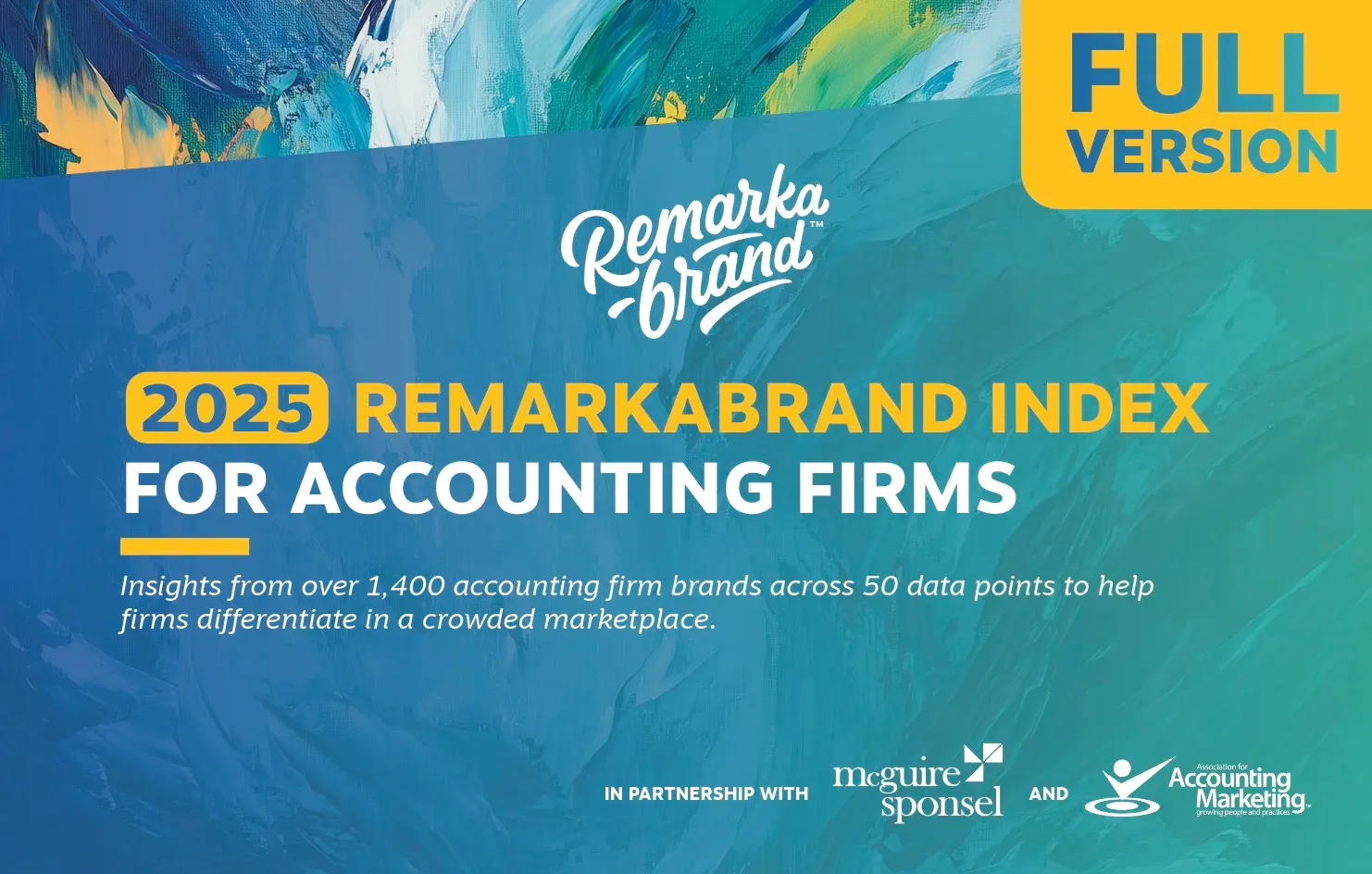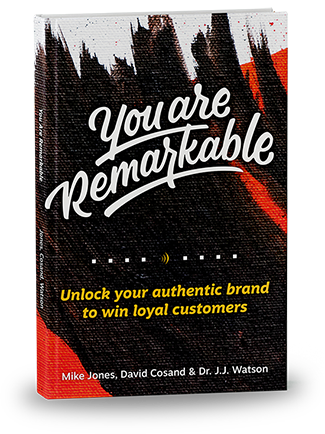More than ever, everyone works, meets, and shops online.
It’s no surprise that companies which previously insisted on a brick and mortar location for their workers are now almost completely remote.
But regardless of that steadily encroaching fact, your brand’s geographic, physical location still matters. In fact, and for a few primary reasons, I’m going to spend this month’s article arguing that it matters even more than you think.
The main reason why location matters—and a kind of catch-all summary for more reasons—is that we’re physical beings…obviously. We exist in physical locations. Even with the likes of e-commerce, virtual reality, and opportunities to work online embedding themselves into the fabric of daily life, geographic locations and all their sensory, historical-cultural, and experiential particulars still pique and intrigue us—or in some cases, repel us. You don’t need to look very far to find examples of this, (unless you’ve been dutifully under a rock this last month.) If you think physical locations and all their colorful baggage don’t matter, look no further than people and companies moving from coastal states to other states in record numbers. Or just look at all the hype and controversies that surrounded Qatar’s hosting of the 2022 FIFA World Cup.
As the old realtor’s adage goes, there’s no beating—or at least, no factoring out—location, location, location.
Fair enough.
But what does all this have to do with brand building?
Brand Location Quiz
Here’s a brain-teaser.
Each of these brands and companies drew closely from a physical location for their name and brand identity. Can you guess that founding location for…
- Patagonia (outdoorsy clothing based in California…but where does its name come from?)
- Haribo (gummy bears)
- Big Sky Brewing (glug, glug)
- Cisco (digital technology and communication)
- Valero (gas stations)
- Carrefour (a French grocery chain…no hint with that one)
And, last but not least:
- Bank of America (a little trickier…but worth looking up if you don’t know the answer)
There you go. I’ll include the answers at the bottom of this article…scroll ahead if you can’t wait to see them.
As you can probably tell, I really enjoy this topic.
In fact, I wrote and published a previous article on location branding, how important it is, and how B2B’s can incorporate their location into the winsome mix of an authentic brand identity. Here, I’m keeping this topic up-to-date with a more horizontal focus on location, and its role in your organization’s day-to-day, operational landscape.
Even if your workforce is all remote–or if you’re like most companies in that you’re still trying to figure out this work-from-home, shop-from-home, some people back in the office hybrid thing out–your location matters.
Even if you’re an e-commerce business that sells to customers who don’t interact with you, and who simply buy your product without ever coming into any kind of physical, real-world environment.
Nevertheless, depending on your brand strategy and perhaps to a lesser degree than other circumstances, location is still important.
With that in mind, the question I’ll be focusing on is how.
How does location matter to a brand or company?
In what ways and to what extent?
Geography and Location Basics
As it usually turns out, the branding’s in the details.
Historically, and before it became hard to find a company’s physical address on their website, physical location embodied a large part of a brand’s identity. More than that, claim to a particular location often, and still, shapes a brand’s strategy and expression, playing on how people around the world perceive that location. While that claim takes many different forms and shapes a brand in countless ways, a lot depends on branding efforts that might or might not be taking location into account.
Because locations are intriguing and evocative, many brands go with loud, on-the-nose ties to a certain location as an optical effort to market themselves.
Nothing wrong with that.
Some Modern, Well-Known Examples of Location-inspired Brands
From Arizona Iced Tea (made by a company in upstate New York) to Texas Roadhouse restaurants (owned by a company in Kentucky), there’s a huge number of brands and products that claim a location as their name without having existed there. Texas, Hawaii, Florida, Japan, London—any iconic location that captures people’s imaginations in certain ways finds itself in a product name…and for good reason.
In terms of pure brand naming—and by the way, even the word ‘branding’ comes from location, from the act of branding cows with a symbol to tell them apart from one ranch or another— certain locations punch above their weight.
If a hot sauce company puts ‘Texas’ or ‘Louisiana’ in their name, that conjures up a world of sensory, and in this case, culinary associations in people’s minds. In effect, that hot sauce company might be saying: ‘we’re a flavory, cajun kind of sauce,’ (Louisiana) or rather, ‘think of us like you’d think of a mouth-watering Texas brisket, served up in a roadhouse with sawdust on the floor’ … and so on.
We might roll our eyes, but chances are we’ll get the idea.
To some extent, that’s also why we might drive a ‘Tucson,’ a ‘Sienna,’ or a ‘Sedona’ …but probably not an ‘East St. Louis.’ Invoking a desirable location gives a flair and a cadence to products that we otherwise wouldn’t think about.
To that end, and whether or not it’s always based in fact, location is a guiding force for marketing strategy, conversations, and brand expressions that resonate with people. It’s not for nothing that companies who may or may not be from Florida ask questions like:
“Is our company a Florida brand? Do we have a laid-back, sunny-tropical day kind of vibe? Or are we more of a rugged, Rocky Mountain kind of brand?”
Drawing from a Location Can Convey Essential Ideas About Your Brand Identity
In terms of value, aesthetics, norms, and associations that people quickly recognize, location means a lot. If a location syncs with a brand’s values, identity, and authentic expression, that meaning will carry over and we’ll see it—regardless of where we’re working, shopping, or browsing.
This also raises the question of whether or not location is a simple way to tack-on an association that bears no relationship to the actual product.
It certainly could be.
If your brand is adopting the style and swagger of a place it has nothing in common with, then you should probably rethink that approach. In the end, people don’t respect copycat brands, or anchorless, superficial brands that try to be everything to everyone. With few exceptions, tacking on a location just to move more product is a losing, short-term strategy that doesn’t build a loyal audience over time.
One way to avoid this pothole is owning the place that birthed, or influenced your brand’s history and values in indelible ways.
Owning Your Brand’s Location
Of course, many companies wear their original locations like a badge.
More than that, they take that location’s associations and let them define the company’s brand identity, brand expression, and growth and marketing strategy. Where everyone else is pressing for a digital, or international flair, sticking with one’s hometown is a bold choice, but not a surprising one.
There’s pros and cons to doubling-down on where you came from. Companies like Chrysler have even tried it with Detroit—a bold, calculated move because most people don’t find Detroit exotic, evocative, or even positive as a location.
But in a world where it’s harder to pin a brand down to a particular location, drawing from geographic roots to develop one’s brand identity has clear upsides. Of course, people want the option of working from home, or from anywhere in the world, but that leaves us craving a sense of sensory physicality that zoom meetings and even virtual reality increasingly lack.
Rather than simply being a way to imbue meaning into a product, location, and even local culture, both matter to brands and their customers.
After all, brands are made of people…and people have to live somewhere.
Location for the Remote Workplace
If you’ve gone fully remote, or if your workers and customers interact online from different corners of the planet, places still vibrate with meaning, flavor, and identity.
That’s because, while workers and management, or customers and vendors, may not be ‘located’ together, in a sense, everyone’s in ‘locations’ together. Think of your last few work-related zoom calls. If I had to put money on it, I’d bet that you, or someone you spoke to on zoom asked something like “Hey, how’s the weather where you are?”
Or at the very least, (and if they didn’t already know), someone said, “So where are you calling from?”
Even if we’re gathering online from different places, geographic location still piques our curiosity. Places are a common point of connection in the online workplace. For online companies who want their workforces, team members, and ultimately their brand to thrive, recognizing, sharing, and celebrating locations is a smart move.
And even though the remote workforce presents considerable challenges, there’s ways that brands and companies can turn everyone’s location to their advantage.
Try Local Culture
One of our values at Resound is local culture.
Even though our workforce meets online every day, and even though our roots are in Tempe, Arizona, aren’t always visible publicly, tying local culture to our mast means wanting all of our team members to flourish in their own local communities.
In the work-from-home era, and with an office in Tempe and remote workers around the world, we’re still learning how to do that.
In conversation, and in monthly meetings, we talk with team members about what’s going on in their neck of the woods. We celebrate when they celebrate, and in the other direction, we tell them all about what’s happening where we are. As an added boost, and as something we proudly incorporate without a front-facing name like ‘Arizona Iced Tea,’ we’re deeply connected to our location.
Many of our clients and colleagues are also in Phoenix. In more than one case, they’re right down the street, or in the same building as our office.
Caring about communities and taking an interest in them comes from our willingness to celebrate our own location, to fly our hometown flag wherever we can. Just like we want Tempe, Phoenix, and the state of Arizona to flourish, we want our team member’s communities in Idaho, Ohio, Kentucky, South Africa, the United Kingdom, and elsewhere to flourish.
Tapping in to Physical Location
Finally, and in a time when people working and shopping remotely are craving physical, in-person experiences like never before, location can be a tactical advantage. Whether it’s front and center in a brand name, or present in undertones and accents (like a ‘Texas drawl’) physical locations come through in a number of ways, letting people connect the dots as they form their impression of a brand’s history and personality.
Done well, and with a clear approach that reflects a company’s identity, location helps people experience brands in a particular, potent way.
People who experienced formative challenges in a particular place and time, (say, raising a family, playing on a football team, or studying together to survive a particular medical school), bonded from those in-person experiences. They bonded because physical interaction with touch, smell and other physical people builds memories in a way the digital world can’t…and probably never will.
Sorry, Metaverse.
Nothing personal.
To a lesser degree, walking into a store or an office is still inherently different and much more memorable than buying something online. In a zoom chat, nobody shakes hands. Physical location brings in elements (like more of the five senses) that are hard to incorporate in an all digital experience.
In fact—and even if you’re not launching your own flashy copy of the Apple store or the Rainforest Cafe—there’s a huge opportunity to flip the ‘all digital experience’ on its head by offering some kind of real-world experience for your customers.
A remarkable one that only you can offer.
Even if you don’t have an office or a physical headquarters, can your brand create some kind of pop-up or temporarily real experience that has a sense of location to it? If so, that might be a way to offer something people are increasingly craving: physical locations and experiences that offer variety, entertainment, and in-person interaction.
All in a specific place and time.
Online or In-Person, You are Remarkable
I’m all for working and doing business online. But I could talk about location (yours, mine, or the site of future World Cups to name a few) all day.
People, more than ever, crave physical experiences, even as everything goes digital. This means location still matters, and that brands need to think carefully about their ties to geography, their physical presence, and what those things communicate about them to their customers. Owning, recognizing, and embracing location (whether it’s a real-historic one or one you’ve adopted) in authentic, purposeful ways helps your brand resonate with physical, location-based people.
And that’s a good thing because your brand is remarkable.
If you need some help working through your remarkable identity, building it into a strategy, or shaping it into a thoughtful, confident brand expression that will grow your customer base, check out the resources on our website or give the Resound team a call.
And we’ve got plenty of wind for your sails in our B2B branding book: “You are Remarkable”, available on Amazon.
Wherever you are… and wherever you’d like to be, we’d love to hear from you.
Happy branding.
P.S. Here’s a few quiz answers
Get your red pens ready.
- Patagonia operates out of Ventura, California. But its name comes from the far-off, southern portion of Argentina and Chile.
- Haribo, believe it or not, is a German candy company based in Bonn, Germany. The name ‘Haribo’ comes from the first two letters of the founder’s name—Hans Riegel—along with the first two letters of the location.
- Big Sky Brewing – Missoula, Montana. Home of big skies.
- Cisco – As the name (or should we say, ‘nickname’ implies), San Francisco, California.
- Valero – Founded in San Antonio, Texas, and named after the full name for the Spanish mission there: Mission San Antonio de Valero.
- Carrefour – If you know this one, you’re really up on your international brand history. While you’ll find a Carrefour in far off places like Indonesia, Africa, and all over South America, the grocery chain was founded in Annency, France, near a crossroads.
And finally,
- Bank of America was originally the ‘Bank of Italy,’ founded in San Francisco by an Italian immigrant in 1904. The actual ‘Bank of America’ was founded in Los Angeles around the same time, but Bank of Italy acquired the name. Very American, in the melting-pot sense.



